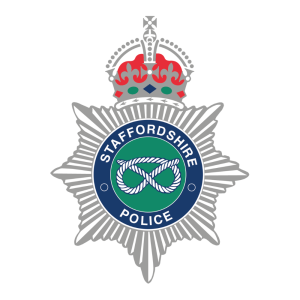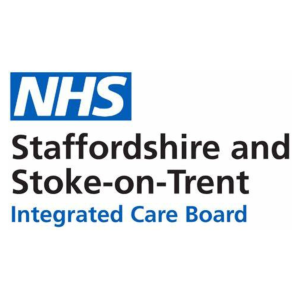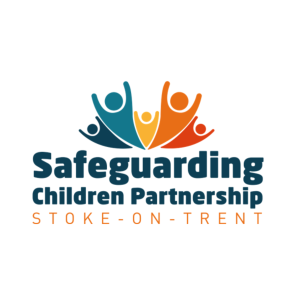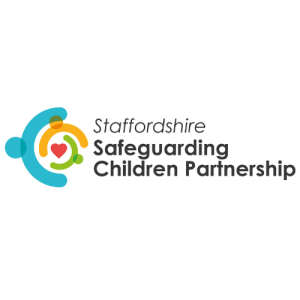Trauma Informed Stoke-on-Trent and Staffordshire
Supporting Stoke-on-Trent and Staffordshire to be Trauma Informed
What is Trauma?
Why is Trauma Informed Practice Important?
Implementing Trauma-Informed Practice requires an awareness of its existence, and understanding of the role it plays, and the ability to adjust our approach and practice accordingly. If we embed this approach in meaningful ways the outcomes for those, we work with irrespective of trauma experiences, will be improved. (Center of Disease Control, 2020).
A primary aim of Trauma Informed Practice is to increase an organisation’s awareness of how trauma can negatively impact on children and adults, so that they can adapt practices to avoid causing further trauma.
As such, Trauma Informed Stoke-on-Trent and Staffordshire (TrISS) has developed a suite of resources to assist professionals and organisations to realise, recognise, respond and resist re-traumatisation.

Resources
Trauma Informed Stoke-on-Trent and Staffordshire (TrISS) has developed the below resources to provide organisations and professionals with an understanding of trauma, the potential impacts of trauma and how to implement trauma informed care. An awareness video, briefing and explainer guide has been produced for each of the topics.
Overview
These documents provide a high-level overview of Adverse Childhood Experiences (ACEs) and Trauma and introduce the suite of resources to support the start of Stoke-on-Trent and Staffordshire becoming Trauma Informed.
An Introduction to Trauma and Trauma Informed Practice
Trauma is complex and multi-layered and can have a range of impacts on those who experience it. These resources have been designed to provide you with an overview of what trauma and trauma informed practice are. We explore what to look out for and how we can help.
Potential Effects and Impact of Trauma
In these resources, we sensitively explore some of the impacts trauma can have on physical and psychological wellbeing. You will be able to take away what an immediate response, ongoing support and how to support in the long term may look like.
Appropriate Language Use in Trauma Informed Practice
Language is one of the most powerful tools we have and sometimes it can be challenging to find the right words when we are supporting those who have experienced or are experiencing trauma. This guide contains insights into how to be more aware of the language and we have also included some examples of phrases you can use.
Minimising the Effects of Vicarious Trauma
When working with others who have experienced trauma, it is essential that we remember ourselves too! It is hoped that these resources will support you to reflect on your own wellbeing and to consider how we can minimise the impact on our own wellbeing.
Integrating Trauma Knowledge into Organisational Cultures
Trauma informed responses need supportive, transformational leaders. Here, we explore what is required on a cross-organisational level so that we can foster a sense of belonging and keep our teams well. Additionally, you will start to build up an understanding how to create and implement policies and practices for working with Children and Young People who have experienced trauma.
Practical Strategies for Collective Care
For those with leadership and management roles, we consider how to engrain team well-being practices and support each individual’s contribution to the overall well-being of others. This is achieved through an explanation of the meaning of collective care, the principles that underpin it, and some strategies to try.
Practical Strategies for Co-Production
The best learning we can gain is to learn from those who are using our services. In these resources, we explore together the principles of co-production, how we can work equitably and how to evaluate how trauma-sensitive our services are for those at the heart of them.
Implementing a Trauma Informed Approach
These resources have been developed to support organisations to implement a Trauma Informed approach into their practice.
Are you concerned about a child?
If you are worried about a child and wish to make a referral, please contact your local children’s safeguarding board relevant to your local authority:
Stoke-on-Trent
Between 8:30am – 6:00pm Monday to Friday, you can call the Children’s Advice and Duty Service (CHaD) on 01782 235100 to speak to an experienced social worker about your concerns. Outside of these hours you can contact the Emergency Duty Team on 01782 234234. If the child is in immediate risk, call 999. For further information visit: Safeguarding Children Stoke
Staffordshire
Between 8:30am – 5:00pm Monday to Thursday or 8:30am – 4:30pm Friday, you can call Staffordshire Children’s Advice and Support (SCAS) on 0300 111 8007. Outside of these hours you can contact EDS on 0345 604 2886 or email eds.team.manager@staffordshire.gov.uk. If the child is at immediate risk, call 999. For further information visit: Home – Staffordshire Safeguarding Children Partnership (staffsscp.org.uk)
Adding to your own support network
If you have any concerns or are looking for support speak to a trusted colleague, line manager or supervisor. Refer to your organisation’s policies and consider raising any concerns during your Personal Development Review (PDR). Your organisation/service may have access to paid for counselling/supervision you can access.
Support
- Samaritans call 116 123 jo@samaritans.org.uk
- SHOUT: text 85258
- NHS Every Mind Matters Every Mind Matters – NHS (www.nhs.uk)
- Hub of Hope Mental Health Support Network provided by Chasing the Stigma | Hub of hope
- Your GP has access to a range of services too.
- For further support visit Support – Violence Reduction Alliance
Our Partners
The below partners are utilising the TrISS resources to help make Stoke-on-Trent and Staffordshire a Trauma Informed area. To become a pledger email SSVRA@staffordshire-pfcc.gov.uk.



